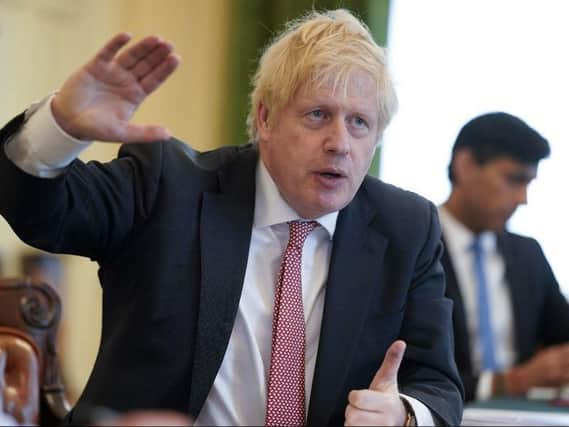Prime Minister Boris Johnson tells nation not to 'slacken resolve' despite Pfizer vaccine hopes


Boris Johnson said the Pfizer vaccine - found to be more than 90 per cent effective - was a sign the "scientific cavalry" was on its way but stressed the need for caution.
He told a Downing Street press conference the vaccine had cleared a "significant hurdle" but there were more to cross before it could be used.
Advertisement
Hide AdAdvertisement
Hide Ad"I must stress that these are very, very early days," he said during a Downing Street press conference.
Mr Johnson said he had talked about the "distant bugle of the scientific cavalry coming over the brow of the hill" with a breakthrough.
"I can tell you that tonight that toot of the bugle is louder, but it's still some way off, we absolutely cannot rely on this news as a solution," he said.
"The biggest mistake we could make now would be to slacken our resolve at a critical moment."
Advertisement
Hide AdAdvertisement
Hide AdProfessor Jonathan Van-Tam, Deputy Chief Medical Officer for England, said he was hopeful but not certain that "we could begin to see some vaccine by Christmas".
Prof Van-Tam described the vaccine announcement as a "huge milestone" and said it was good news for other future vaccines.
He said: "So this is like... getting to the end of the playoff final, it's gone to penalties, the first player goes up and scores goal.
"You haven't won the cup yet, but what it does is it tells you that the goalkeeper can be beaten."
Advertisement
Hide AdAdvertisement
Hide AdBut Prof Van-Tam said "we don't yet know" when life can get back to normal or when coronavirus restrictions can start to be lifted.
"Frankly, we're in the middle of the second wave, and I don't see the vaccine making any difference for the wave we are now in," he said.
"I'm hopeful that it may prevent future waves, but this one we have to battle through to the end without a vaccine."
Approval for the use of a vaccine in the would need to be made by the independent Medicines and Healthcare products Regulatory Agency, said Prof Van-Tam.
The Joint Committee on Vaccination and Immunisation hasalready issued preliminary guidance stating the priority groups for any coronavirus vaccine , and these would put elderly people first.